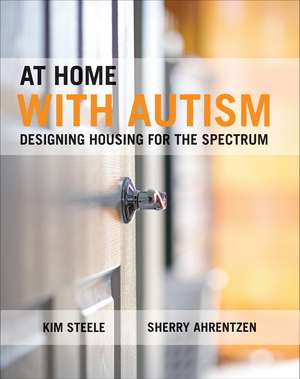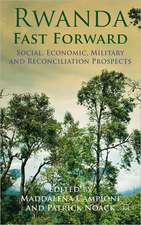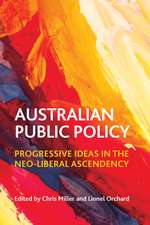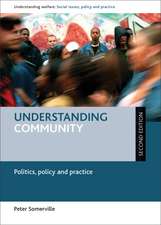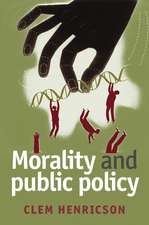At Home with Autism: Designing Housing for the Spectrum
Autor Kim Steele, Sherry Ahrentzenen Limba Engleză Hardback – 24 noi 2015
At Home with Autism offers a close look at current practices for designing housing that will support the needs and aspirations of people with autism, and it mounts a powerful case that there should not be a singular residential model or approach. Rather, the authors argue, residential design for autism should be flexible and varied, focused on quality of life and the expansion of residential choices for people on all parts of the autism spectrum.
Preț: 669.84 lei
Preț vechi: 736.08 lei
-9% Nou
Puncte Express: 1005
Preț estimativ în valută:
128.29€ • 132.17$ • 107.46£
128.29€ • 132.17$ • 107.46£
Carte disponibilă
Livrare economică 03-17 februarie
Livrare express 17-23 ianuarie pentru 39.34 lei
Preluare comenzi: 021 569.72.76
Specificații
ISBN-13: 9781447307976
ISBN-10: 1447307976
Pagini: 320
Dimensiuni: 171 x 241 x 23 mm
Greutate: 0.7 kg
Editura: Bristol University Press
Colecția Policy Press
ISBN-10: 1447307976
Pagini: 320
Dimensiuni: 171 x 241 x 23 mm
Greutate: 0.7 kg
Editura: Bristol University Press
Colecția Policy Press
Notă biografică
Kim Steele is a research and design consultant focused on improving quality of life through design. Sherry Ahrentzen is the Shimberg Professor of Housing Studies at the University of Florida.
Cuprins
Introduction: Why This Book Now?
An Evidence-Informed Approach
Design Goals To Support Quality of Life
Design Guidelines
On the Horizon
An Evidence-Informed Approach
Design Goals To Support Quality of Life
Design Guidelines
On the Horizon
Recenzii
"Anyone seeking to create a home for an adult on the autism spectrum needs to read this book. Steele and Ahrentzen combine their extraordinary understanding of autism and design to provide a clear guide for crafting living environments that respond to the unique individual needs of those with ASD."
“In At Home with Autism Kim Steele and Sherry Ahrentzen deliver courageous, compassionate, and assiduously researched design guidelines in service to adults with a singularly challenging neurodevelopmental disorder, the first book to expressly address this topic.”
“This book offers a useful contribution to the design of housing for people with Autism Spectrum Conditions. The authors bring personal insight and available research. . . . Their book is practically oriented and well-referenced. . . . It is a helpful introductory resource for practitioners, and those interested in the important field of neuroatypical design.”
